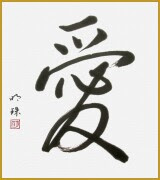"The Fly"
I thought this was an interesting piece. Upon first reading it, I read the stanzas down and got an interpretation that someone was talking to a fly about their similarities. Flies bounce from place to place almost in a dancing motion. The voice also expresses the same interest explaining that they could be of one "body" because they share this desire, to dance and sing until someone tells them to leave. This reminded me of children who go around amusing themselves living in their own mental world until they are "brushed" away by reality. This moment of being brushed away is like taking the innocence of the child. The voice then philosophically discusses life and its meaning through thought. This is a major theme of Blake. He expresses similar philosophies in his piece "All Religions Are One" The first principle in this article is that the "Poetic Genius" is the true man. This to me reads as the mind is the basis for life. His outward life is an outward extension of their "Poetic Genius". All truth comes from their Poetic mind and not from Philosophy ideals or from his heart. Life comes from thought and not from desires. Humans should be rational beings and not controlled by their selfish desires. This idea also expresses the need for intelligence above ignorance and stupidity. Blake was not formally taught, as expressed in the prologue, but was an avid learner nonetheless. His insatiable desire for knowledge bleeds through the line "And the want of thought is death;". Knowledge is power and life to him, those without it are lacking.
After reading the caption next to the picture I reanalyzed the poetry because it states that the poem structure could be read down or across. Reading the poem across seems to express a similar idea from before. I didn't really see a difference in the secondary structure.
Saturday, June 7, 2008
Subscribe to:
Post Comments (Atom)

4 comments:
NIcole,
I think this post shows some improvement over your first one, despite addressing such a challenging poet as Blake. You improve your focus by mainly limiting your attention to a single poem, and you pay some close attention to parts of the poem. I do think it would be better to quote longer passages than you do here, though, both to help clarify your attention and to let your reader better see the basis for your interpretation.
Keep up the improvement, and I look forward to your subsequent posts.
You discussed the central idea that Blake brings up that I agree with. The balance between knowledge and innocence is a difficult one to maintain. I think children these days grow up very quickly and devoid their innocence and simplicity much sooner. Blake would encourage the child's innocence, but also encourage healthy gradual integration of knowledge to keep the children from being swayed in ignorance.
I thought your take on "The Fly" was very unique and interesting. I like how you discussed the child-like innocence that both the fly and speaker seem to possess until their "brush" with reality. I like that interpretation of the poem very much. I hadn't noticed the changing tone until you mentioned it in your post.
I thought that Blake was trying to convey that all people are part of the same world--no one person or thing is above the rest. The speaker seemed connected to the fly in this poem, realizing that it is important to be conscious of the views of others.
While our views on this poem are very different, I like the idea that it meant different things to different interpreters, thus giving the poem more depth.
I enjoyed reading your interpretation of this poem. I do agree that the main idea of the poem was about innocence and how is progresses. I have a younger sister, and I am amazed at how quickly she is growing up. She says thing sometimes and I just wonder where she gets these ideas from. Like Blake, I wish that this child-like innocence was prolonged a bit and slowly influenced by reality.
Post a Comment